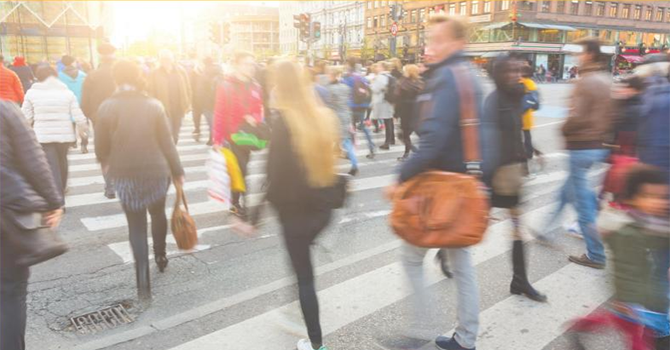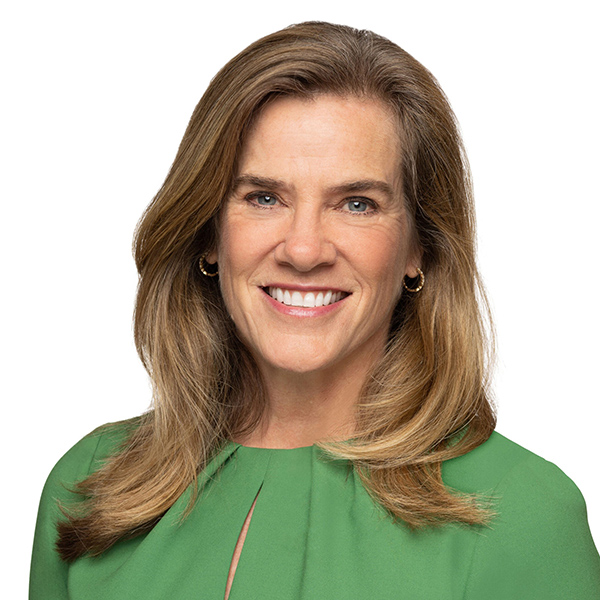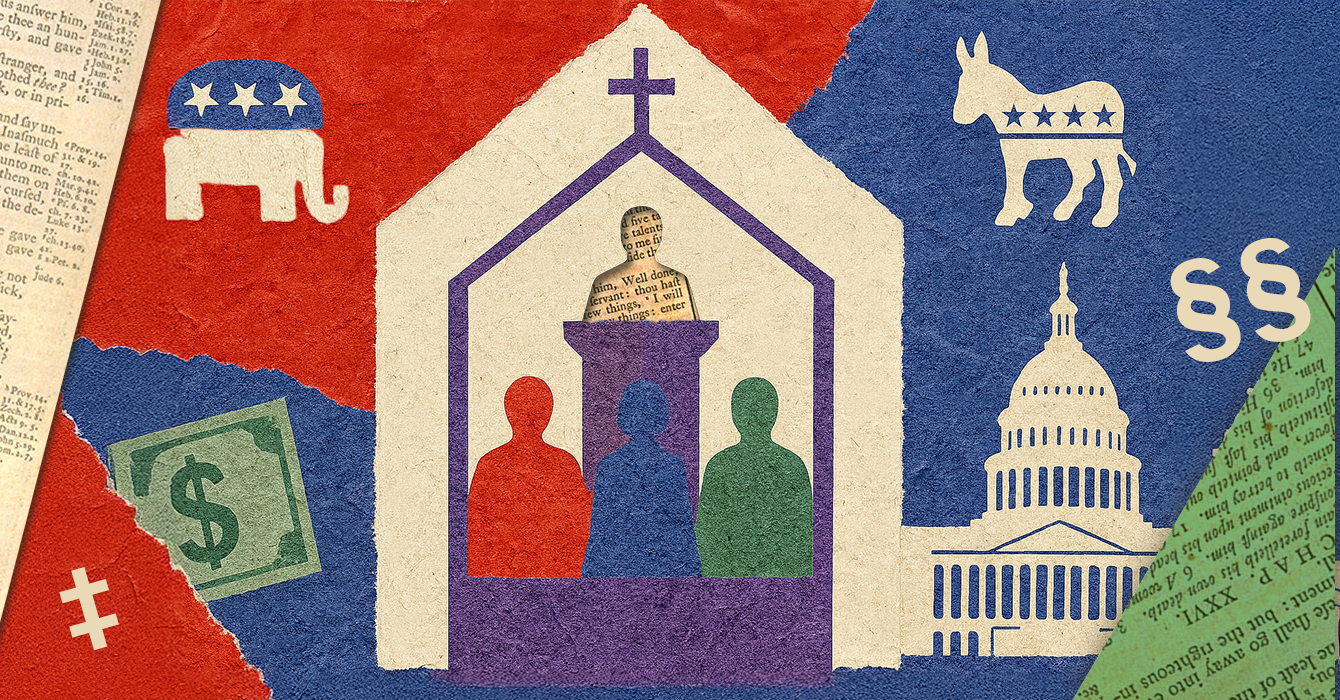Cities in the Western world today have developed into two types, says Michael O. Emerson: those committed to the growth of markets and wealth and those committed to the flourishing of people.
And those two different perspectives on a city’s overarching purpose create very different outcomes and ways of life.
 “'Market cities' end up with higher social inequality and more segregation and higher crime than 'people cities',” Emerson said. “People cities have higher trust among their people and more civic participation than market cities.”
“'Market cities' end up with higher social inequality and more segregation and higher crime than 'people cities',” Emerson said. “People cities have higher trust among their people and more civic participation than market cities.”
A sociologist and urban studies expert, Emerson is co-author, with Kevin T. Smiley, of “Market Cities, People Cities: The Shape of Our Urban Future.” Though most cities lie on a continuum, with elements of both basic city types, they ultimately trend one way or the other, Emerson said. In the book, Emerson and Smiley offer an in-depth look at two extreme examples -- Houston, Texas, as a market city, and Copenhagen, Denmark, as a people city.
Few cities in the United States are people cities, Emerson said, but all cities and their residents have more choice than they realize over the direction their future development will take.
 And while the book is not a religious work, the church does have a role to play in helping cities map their future. “Churches can be a major voice in the narrative of people understanding that you can do this,” said Emerson, who serves as provost at North Park University in Chicago.
And while the book is not a religious work, the church does have a role to play in helping cities map their future. “Churches can be a major voice in the narrative of people understanding that you can do this,” said Emerson, who serves as provost at North Park University in Chicago.
“If you do a biblical analysis of what cities are to God, cities are supposed to be places where creation flourishes,” he said. “In our measures, people flourish more in people cities than in market cities.”
Emerson spoke recently with Faith & Leadership. The following is an edited transcript.
Q: Your book contends that Western cities have diverged into these two specific types. What do you mean?
When market cities are asked, “What’s the purpose of a city?” they say it’s to create jobs, to lure companies, to create regional wealth -- and that is going to make a healthy, vibrant economy, and then life is good.
A people city will say the purpose of a city is to create a high quality of life for its citizens and to create equality between its citizens -- to make life livable, healthy and sustainable.
That different assumption about what the city is for creates extremely different outcomes -- from the city’s priorities to how it spends money to what it will decide when it’s forced to make decisions, which it always is.
[Residents] have a very different experience of living in these different kinds of cities.
Q: How so? How does life differ in market cities and people cities?
In the book, we say that cities have interrelated urban institutions, which tend to cluster in a similar way and combination that will make a city a market city or a people city -- for example, how land is used, how transportation is designed.
In market cities, transportation tends to focus on cars. They let individuals cover the cost of buying their own cars, etc., and they will make the roads.
People cities will say, “We need to focus on public ways of transporting people. We need to focus on a variety of ways to transport people. We need to figure out what’s the healthiest way for people to move around.”
Market cities end up with higher social inequality and more segregation and higher crime than people cities. People cities have higher trust among their people and more civic participation than market cities.
So all these things wrap and coalesce together.
Q: You make the point in the book that all cities have elements of both market and people cities but that they are on a continuum, with most trending in one direction or the other. But you look at two extremes, Copenhagen and Houston.
They are what we’d call our “ideal types” -- our term for basically the extreme.
Houston is so sold out to being a market city that that is its one -- and pretty much only -- focus.
Copenhagen actually states that it wishes to be the best city for people in the world, so it constantly focuses on that.
Cities do fall on a continuum, but they tend not to be right in the middle.
People often ask, “Well, can’t you kind of be both?”
It turns out that it’s very difficult, because cities have finite resources and ultimately have to make decisions, so in the end, the city goes one way or the other.
Q: Are these categories necessarily “bad” and “good”? I hear them, and I think “people cities, good; market cities, bad.” It’s a very stark contrast you draw in the book between Houston and Copenhagen.
It is stark. But we were amazed when we actually surveyed residents in these cities.
We had questions like, “Are you happy living in this city? Would you recommend this city? Do you think there’s a better city to live in versus other cities?”
But you don’t really find a difference in responses between people living in market cities and people cities.
We do talk some about what we call “the closed narrative.” That is, cities are successful in being market cities or people cities when they are able to make that [narrative] understood as the reason they exist -- so that citizens of Houston know that they’re a market city and that’s what they’re there for. If they don’t like that, they’ll leave, but if they do like that, they’re there.
In the book, we don’t ask, “Is there a Christian perspective on this?” But I think there clearly is. If you do a biblical analysis of what cities are to God, cities are supposed to be places where creation flourishes. In our measures, people flourish more in people cities than in market cities.
Q: You’re a sociologist and urban studies expert. What’s the traditional understanding how of cities evolve?
Usually, it’s a one-size-fits-all explanation. All Western cities, at least, are integrated into a capitalistic market. They’re all trying to compete in the same system, and they basically have to do it the same way, and you have winners and losers, just like capitalism always has.
The winners are the core cities, what we call “global cities.” They’re at the center of the whole system -- the New Yorks, Londons and Tokyos and such. Then you have peripheral cities that basically service these bigger, central cities. They might have a specialty -- they make cars or something.
That’s usually how we’ve been looking at and understanding cities for at least the last 30 to 40 years.
Q: It’s almost a mechanistic model -- given a capitalist system, this is how a city develops. But in the book, you say that cities have a choice in how that happens, and to some extent, that choice flows out of culture, out of a city’s own cultural milieu.
Exactly. We have way undersold that cities actually do have a choice.
We are in a connected global system, with people who are looking for different things. But a city can perhaps be stronger and more economically competitive when you focus on the people themselves. There are options, even though it’s in the same system.
Culture becomes a huge part of it, focusing on creating a culture of what our city is and why we exist. It’s a narrative that happens both from the leaders and then from the people themselves.
If you’re in Houston, for example, and you want to say, “We should have a high quality of life for our citizens,” the way you make that argument is you have to use a market argument.
They will argue, “The reason we want to do this, to have good parks and good transportation and healthy neighborhoods and such, is because it will then attract businesses, because businesses need to hire people, and that’s what people want. It will help us be a better market city if we can focus on some of these people initiatives.”
But when you’re in Copenhagen, you don’t hear an argument like that. You might hear an argument like, “The reason that we should try to lure this company here is because it will increase our tax base to allow us to create a higher quality of life for our citizens.”
It’s a whole different way of focusing the argument. That’s because people live in and understand the culture in which they’re existing. Culture shapes how you argue, what things you’re focusing on, what you’re trying to accomplish.
Q: To what extent are market and people cities mostly reflective of the nation where they’re located?
We get that question a fair bit.
Do you have variation within countries? Can you have market cities and people cities in the same country?
We find that, over and over, yes. Cities are always impacted by the larger governmental units that they’re nested in -- the county, the state, the federal government -- but they still have choices.
That is especially true for cities, because cities are the drivers of human culture and human economics. There are reasons why cities are more effective at that. They have more power than they often think they might have.
Q: What are the people cities in the U.S.?
It’s on a continuum, but we don’t have any strong people cities like Copenhagen or Munich, Germany.
Portland is working very hard to move that way. Minneapolis has been moving that way and is touting a lot of policies and trying to change the narrative there.
Q: Where does the church fit in all this?
Churches need to study what the Bible does teach us on cities. I started to do this and have been amazed. The word “city” is important enough that it’s mentioned over a thousand times [in Scripture]. And the end result is that we start in a garden but we end up in a city. We are told all the details of what the heavenly city is -- its measurements and everything, and even where God and Jesus will live.
Cities are places that release our greatest potential as humans. They’ve always, from the very first city, been places of refuge, places where people who are different can find a home. And interestingly, cities actually compel spiritual searching.
In the hubbub of all the diversity and people bumping up together and all these different ideas flowing and everything, the city starts making people question and ask, “What does it all mean?”
It’s also a rich place for people of faith to communicate God’s love, God’s message. Ultimately, although we’ll never quite get there, we’re supposed to be seeking the peace and prosperity of the city, as it says in Jeremiah.
That’s supposed to be our work. What is that peace and prosperity? That is God’s creation flourishing. In my own personal perspective, people cities get us much closer to that than market cities.
We are called to the city. Whether we live there or not, we’re called to it, because that is our producer of culture. That’s our producer of human life.
The majority of humans live in cities, and [that percentage] will only continue to rise, so this is where humanity lives out its existence. We need to have a much greater focus on cities, to figure out what sort of city are we to work toward and organize to do that.
Churches can be a major voice in the narrative of people understanding that you can do this.
Q: Anything else?
Ultimately, humans create cities, so let’s build them well. Let’s think long and hard about what we are trying to do.
In the past, cities have just been places where people come temporarily. The initial cities were often markets, but they weren’t really places you wanted to be. So much of our narrative was that cities are unhealthy places, and as soon as you can get out, you should get out.
Well, if the majority of humanity is in cities now -- and that will never stop, as far as we can tell -- then our focus now has to be on building cities assuming that’s where we will live.
What do we want them to be?








